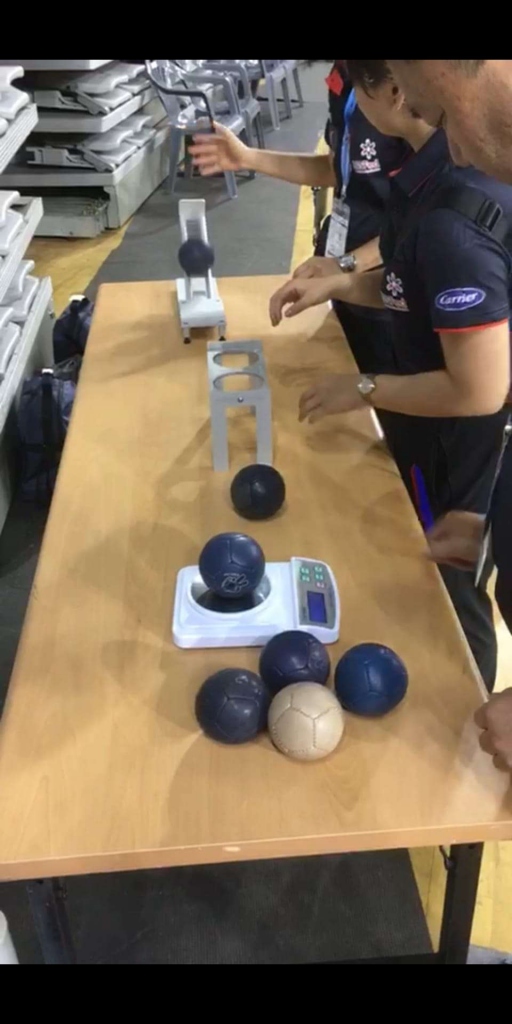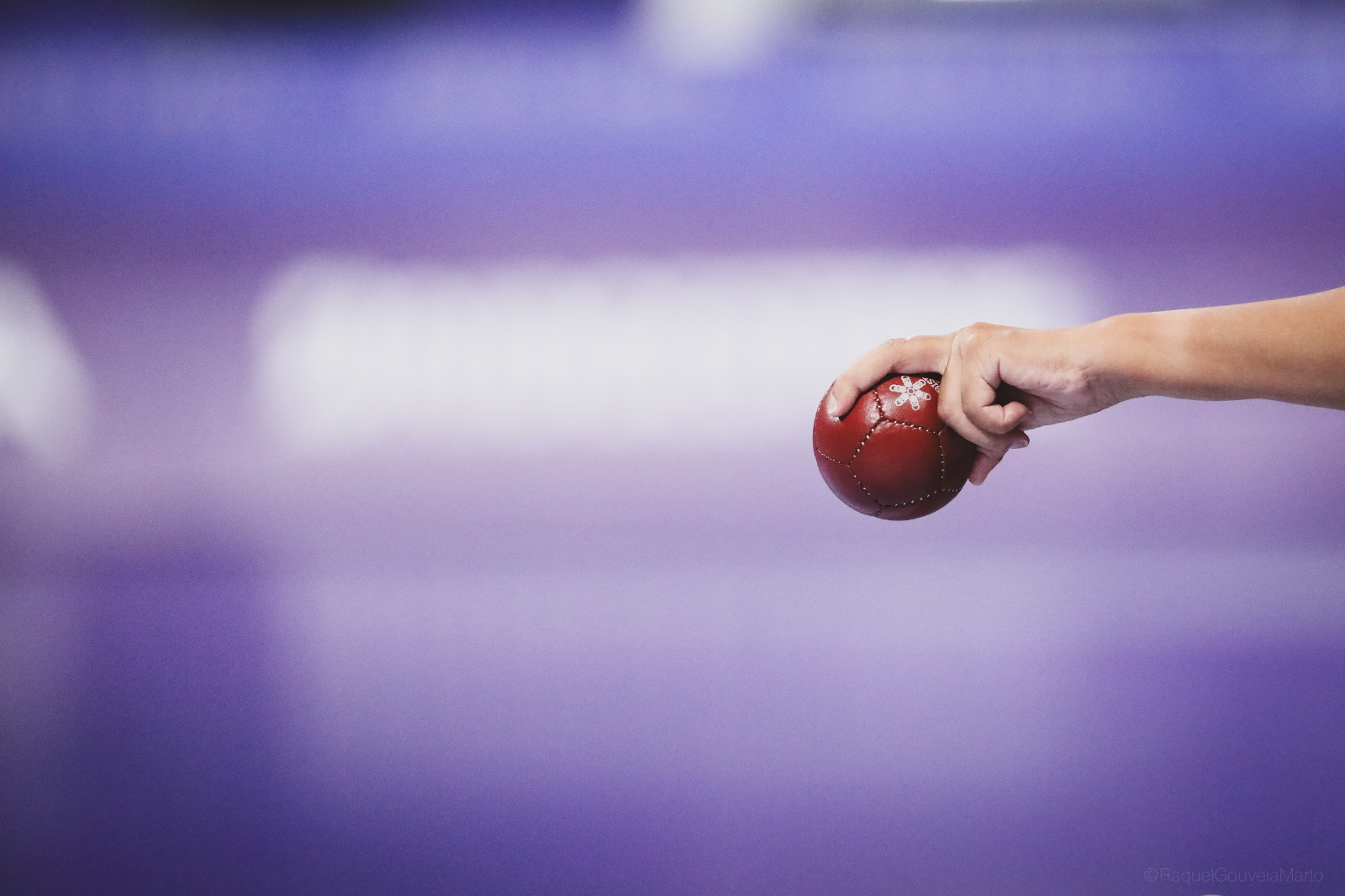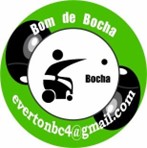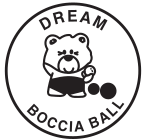Sport Equipment
Sport Equipment Testing
As specified in the BISFed International Boccia Rules
All testing devices required to conduct a tournament must be approved by the BISFed Technical Delegate and or Head Referee of each sanctioned event.
The ball must be allowed to roll under its own weight down a 290mm ramp consisting of a pair of aluminium bars centred 50mm apart. The ramp will be set at 25 degrees to the horizontal. When the ball exits the ramp, it must travel at least 175 mm in a straight line along the exit plate. A ball will pass if it exits the device on at least one of three attempts by falling off the exit plate.
The circumference of the ball should be 270 mm +/- 8mm and will be tested using a BISFed STANDARD template (of thickness 7 – 7.5mm) which contains two holes: one hole with a circumference of 262mm and one with a circumference of 278mm.
The weight of the ball should be 275 g. +/- 12 g. Each ball will be tested using a scale accurate to within 0.01g.

Roll Test History
For many years, the development of boccia balls which are used in competitive play has led to ever softer balls being used at competitions. Many athletes and coaches started to question the legality of some balls because they were so soft and also often not available on the open market. This resulted in a situation where an athlete’s equipment could give a significant playing advantage. This problem arose because earlier versions of the boccia Rules did not eliminate the use of such balls.
BISFed has always been clear that we want a ‘level playing field’ where the athlete’s skill is the most important factor in determining the result of a boccia match. The matter was discussed at the BISFed General Assembly in 2014, and a motion was passed by BISFed’s Members which required BISFed to find a solution.
In response, BISFed commissioned Loughborough University (LU), a world leader in sport research and technology, to conduct a study and to advise on a solution.
LU carried out a 2-Stage project: Stage 1 was an extensive consultation exercise with BISFed Members, athletes, coaches and manufacturers which confirmed that there was indeed a problem.
In Stage 2, LU used standard competition balls provided by 10 boccia ball manufacturers to devise a solution. The University’s advice was that a new rule which tests how a boccia ball performs is required.
The recommended solution is the new BISFed Ball Roll Test which is described above and which has been included in the 2017 Boccia Rules. (It is worth noting that over 98% of the balls supplied by manufacturers passed the new test.) BISFed is confident that introducing the new test from May 2017 will eliminate most of the super soft ‘balls’ which cannot accurately be described as balls.
BISFed Approved
Order a Test Kit
The BISFed Test Kit containing one Roll Test device and one aluminium circumference testing template can be ordered from here. The complete testing kit can be dismantled into a compact box for easy transportation. The cost of the Test Kit will be £230 for members and £280 for non-members, plus delivery, and where applicable, value added tax.
1.
Click on the order link. Orders will be dispatched in the order they are received.
2.
3.
ball licensing
One of the key objectives of World Boccia is to ensure that athletes who compete in international competition are able to do so on an equal basis, including having access to the same equipment and in particular boccia balls.
Since 1st January 2022, only balls from licenced manufacturers can be used in sanctioned World Boccia events and this has led to improved competitive conditions and fairness for all athletes.
The World Boccia ball licensing process coincides with the Paralympic cycle and licenses must be renewed during the year of the Paralympics and begin on the 1st of January the year after.

Ball Licensing 2025-2028 – Licensed Manufacturers List Published










